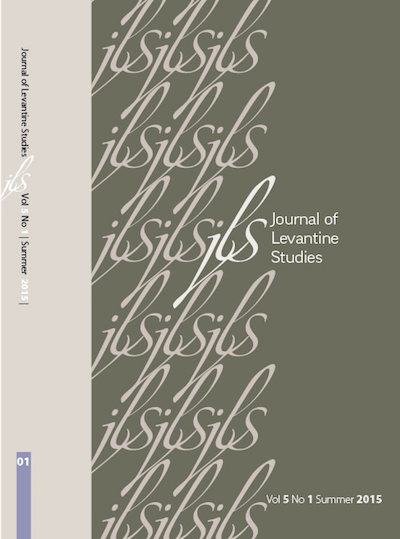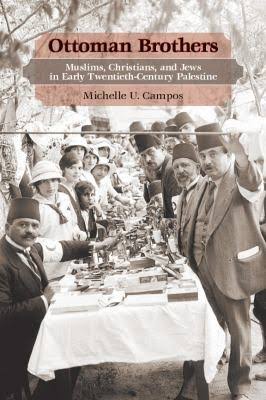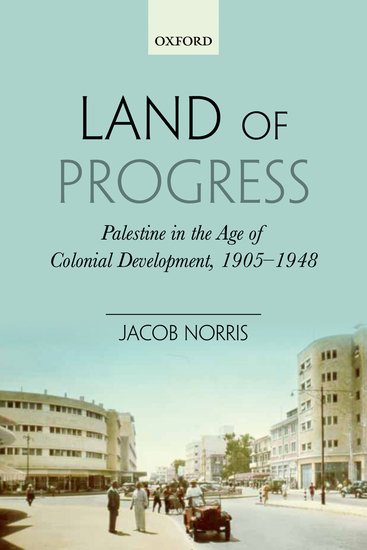-
Add to cartQuick view
Partitions and Translations: Arab Jewish Translational Models in Fin de Siècle Palestine
Free!This article offers a new reading into translation works from early twentieth-century Palestine which operated in between the Arabic-Hebrew cultural and linguistic borderlands. Against the backdrop of the political and social events in that period which dominated by processes of national, ethnic, and religious partitions, the article explores the ways in which these Arab-Jewish translators fundamentally challenges the nationalistic and monolingual separatist ideology and represent an alternative political and cultural route. The article explores their unique translation methods that were based on four principles: Polyglot fusion—mixing Arabic and Hebrew, Jewish and Muslim traditions; loose distinction between oral and written traditions; dialogical approach that emphasizes the intertextuality of literary traditions and the intersections of languages and cultures; and the unfixed intersection between original source and translation. The fluidity that is inherent in these translation methods becomes a source of resistance to the dominant political force and dismantles any (national) claim over exclusive ownership of texts, traditions, or languages. In a time of struggle over the ownership of the (biblical) land and the (biblical) text, these translations focused on tales and traditions free from ownership and without any stable original source.
Add to cartQuick view -
Add to cartQuick view
The Challenge of Administering Justice to an Islamic Minority living in a Non-Muslim State: the Shari‘a Courts in Israel
Free!Iyad Zahalka
Add to cartQuick view -
Add to cartQuick view
The Rear Side of the Front: Gaza and Its People in World War I
Free!During the First World War, the city of Gaza, a regional hub of forty thousand souls and a major market and exporter of grains, turned into a battlefield. While the military and political consequences of this arena are well researched, this article examines its civil and social aspects as well, in order to better understand the story of the First World War in Palestine. Using both British and Ottoman documentation alongside civil accounts and memoirs, the article discusses the reasons, methods, and effects of the city’s complete evacuation and the massive destruction of its physical environment. The civil perspective of the war reflected in the fate of Gaza poses a challenge to common chronological and spatial presumptions about the war itself, and it allows a rethinking of the Mandate period in the light of postwar circumstances.
Add to cartQuick view -
 Add to cartQuick view
Add to cartQuick viewDeclarations of (In)Dependence: Tensions within Zionist Statecraft, 1896-1948
Free!This article analyzes the relationship between dependence and independence in four foundational texts in the history of Zionist statecraft: Theodor Herzl’s The Jewish State of 1896, the Balfour Declaration of 1917, the Biltmore Program of 1942, and the Declaration of the Establishment of the State of Israel in 1948. These documents differ greatly in authorship, structure, and audience, but taken together, they illustrate the Zionist project’s convergence with and divergence from anticolonial projects and postcolonial states in the first half of the twentieth century. Both the political program that Herzl sketched out in The Jewish State and Chaim Weizmann’s lobbying during the First World War depended upon the good graces of Europe’s colonial powers. After the war, jubilation among Jews over the Balfour Declaration was accompanied by displays of gratitude, an emotion associated with conditions of dependence. Like anticolonialism in India, Zionism was cautious about demanding outright independence, although the Zionists’ dependence upon Britain was far greater given their status as a minority of Palestine’s population, facing a hostile Arab majority. When the Zionists did demand independence in the Biltmore Program, they also acknowledged their ongoing dependence upon Britain, which they called upon to fulfill its Mandatory responsibilities. In 1948 the Zionists did not separate from Britain so much as Britain separated from Palestine. The Palestine war of that year was a struggle between Israel and Arabs, not between Israel and Britain. Accordingly, the state’s founding declaration was an assertion of creation, not separation, and of sovereignty, not independence from another power. Nonetheless, the document reflected dependence on the international community that had approved Palestine’s partition in November 1947.
Add to cartQuick view -
 Add to cartQuick view
Add to cartQuick view“This Shameful Document”: Early PLO Intellectuals on the Balfour Declaration and the Hussein-McMahon Correspondence
Free!During the years surrounding the 1967 war, the Balfour Declaration was the subject of significant debate and polemics by PLO intellectuals, especially those affiliated with the PLO Research Center in Beirut. Why did the PLO find the Declaration still relevant half a century after it was issued, and what do the particular arguments these PLO intellectuals used to challenge the Declaration tell us about how they understood their predicament in the 1960s and early 1970s? This article addresses these broader questions in four parts. (1) It considers the prominent place of the Balfour Declaration in the PLO’s founding covenant and proposes an explanation for why the critique of the Declaration is linked to the denial of Jewish nationhood. (2) Through an examination of several Research Center publications, it offers a précis of the substantive arguments articulated by PLO intellectuals concerning the Declaration in these critical years and notes the dissonance between two particular lines of argument: rejecting the Balfour Declaration because the British had already promised Palestine to the Hashemites (in the Hussein-McMahon correspondence of 1915–16) and rejecting the Declaration because the British had no right to promise Palestine to anyone. (3) In light of the complex, evolving, and ever-tense relationship between Palestinian nationalists and the Hashemite regime, and considering other contemporaneous writings about the Hashemites by the PLO Research Center director, the article tentatively suggests that these intellectuals may well have been aware of the dissonance between their arguments, and perhaps intentionally unsettled the legitimacy of a regime that, not unlike Israel, was established partly as a consequence of a World War I–era promise. (4) By exploring in closer detail one argument that distinguished the Balfour Declaration from the Hussein-McMahon correspondence, the article considers the place of international law and pan-Arabist thought in the PLO intellectuals’ arguments.
Add to cartQuick view -
Add to cartQuick view
Michelle U. Campos. Ottoman Brothers: Muslims, Christians and Jews in Early Twentieth-Century Palestine. Stanford: Stanford University Press, 2011. 360 pp.
Michelle U. Campos. Ottoman Brothers: Muslims, Christians and Jews in Early Twentieth-Century Palestine. Stanford: Stanford University Press, 2011. 360 pp.
$5.00Free!Add to cartQuick view -
Add to cartQuick view
Jacob Norris, Land of Progress: Palestine in the Age of Colonial Development, 1905-1948 Oxford: Oxford University Press, 2013. 241 pages.
Jacob Norris, Land of Progress: Palestine in the Age of Colonial Development, 1905-1948. Oxford: Oxford University Press, 2013. 241 pages.
$5.00Free!Add to cartQuick view -
Add to cartQuick view
The Palestinian Historiography of Family Leadership during the British Mandate
Free!This article seeks to expand the study of Palestinian Arab women’s self-identification and social and political activism by examining how Arab Christian women viewed, shaped, and managed their participation in the project of defining Palestinian national identity during the period of British colonial occupation. During the Mandate period, elite Christian women made particular use of mission schools and Christian women’s charitable organizations as platforms for promoting a vision of Palestinian nationalism as modern, nonsectarian, and politically progressive, in hopes of creating a Palestinian national identity in which they could claim a central role. As the Mandate wore on, though, it became increasingly evident that the presentation of Christian women as central to the expression of a broadly based, nonsectarian, modernizing, Westernizing Palestinian national identity was belied somewhat by the communal and class consciousness that education in elite Christian schools and membership in charitable organizations engendered. The way in which this purportedly middle-class, nonsectarian nationalist vision was developed and articulated in highly class- and communally conscious venues ultimately limited its purview and linked it with oppressive colonial practices in the eyes of much of the Palestinian Arab population.
Add to cartQuick view -
Add to cartQuick view
Harbingers of Feminism: A New Look at the Works of Pioneering Palestinian Women Writers
Free!This article brings to light the harbingers of the tradition of Palestinian women’s writing in a gendered reading of the works of two leading, post-1948 women writers, Samira ʿAzzam and Najwa Qaʿwar-Farah. The article examines why literary critics ignored the feminine dimension of these writers’ works, and saw them as imitating and adapting existing patterns and conventions of writing. The article shows, how both thematically and stylistically, these early writers highlighted their feminine presence and that of their heroines; to what extent they succeeded in imbuing their writing with feminist messages; and how they enabled later women writers by laying the foundations of a tradition of women’s literature.
Add to cartQuick view -
Add to cartQuick view
The Forces of Presence and Absence : Aspects of Palestinian Identity Transformation in Israel between 1967 and 1987
Free!This article examines Palestinian identity transformation in Israel during the years between 1967 and 1987. Fifteen Palestinian novels and autobiographies were published in Israel during this period. My article will focus on a group of five from among them that I call counteraction novels. Counteraction novels show the failure of the Zionist modernist paradigm—according to which modernization and integration of Palestinians in Israel are complementary processes—by reflecting a Palestinian distinction between modernism and Zionism. On the one hand, the novels reflect that Palestinians in Israel are grappling with issues posed to them by modernization. On the other hand, counteraction novels present a uniform rejection of Zionism’s erasure and alienation of Palestinians in Israel. I also argue that counteraction novels do not portray a “positive” Palestinian identity; they do not voice what Palestinian identity is.
Add to cartQuick view -
Add to cartQuick view
Mahmoud Darwish: Poetry’s State of Siege
Free!Behar describes the cultural and literary strategy of Mahmoud Darwish, who experienced exile and migration more than once in his lifetime and who transferred the arena of the struggle to the region of memory. Denial and memory are at play in the “state of siege” and weigh on the poet’s ability to write. Behar sees the state of siege as evidence of the Israelis’ fear of Arab culture. Both besieger and besieged are trapped together in the same “state.” As Behar writes, Darwish reminds us of the common denominator shared by the Palestinians and the Israelis—the lack of a distinct, authentic culture.
Add to cartQuick view
- Home
- About JLS
- Issues
- Vol. 9 No. 1 | Summer 2019
- Vol 8 No 2 Winter 2018
- Vol. 8, No. 1: Summer 2018
- Vol. 7, No. 2: Winter 2017
- Vol. 7, 1: Summer 2017
- Vol. 6, Summer/Winter 2016
- Vol. 5, No. 2 Winter 2015
- Vol. 5, No. 1 Summer 2015
- Vol. 4, No. 2 Winter 2014
- Vol. 4, No. 1 Summer 2014
- Vol. 3, No. 2 Winter 2013
- Vol. 3, No. 1 Summer 2013
- Vol. 2, No. 2 Winter 2012
- Vol. 2, No. 1 Summer 2012
- Vol. 1, No. 2 Winter 2011
- Vol. 1, No. 1 Summer 2011
- Blog
- dock-uments
- Subscribe
- Submit
- Contact







